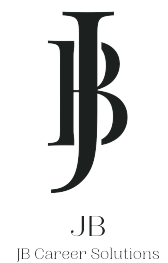
The Power of Networking in a Post-COVID World: Why Face-to-Face Connections Still Matter
In today’s digital age, networking has become more critical than ever before. The COVID-19 pandemic has forced us to adapt to new ways of connecting with people. Although virtual communication has become more prevalent, face-to-face networking remains a powerful tool for building relationships and advancing your career.
Why is networking important even after COVID?
Networking provides numerous benefits to help you achieve your professional and personal goals. Firstly, it allows you to connect with people in your industry, leading to job opportunities, partnerships, and mentorship. Secondly, it enables you to gain valuable insights into your industry and stay up-to-date on the latest trends and developments. Finally, it helps you build your brand and reputation, enhancing your credibility and influence.
How to network in today’s world?
Networking in today’s world has evolved, and while some aspects have remained the same, you can use new techniques and tools to build meaningful connections. Here are some tips to help you network effectively:
- Attend industry events and conferences: Attending conferences, trade shows, and other industry events is an excellent way to meet new people and learn about new trends and developments in your industry.
- Join online communities: With the rise of social media and online communities, you can connect with people in your industry anywhere. Join groups and forums related to your industry and engage in conversations to build relationships.
- Leverage your existing network: Reach out to people you know and ask for introductions to others in your industry. This can help you build relationships with people already familiar with your work.
- Volunteer: Volunteering for events or organizations related to your industry is an excellent way to meet new people and build your brand.
The power of face-to-face connections:
While virtual communication has advantages, face-to-face networking remains a powerful tool for building relationships. Meeting people in person allows you to build trust and rapport more quickly than virtual communication. It also provides opportunities to read body language and facial expressions, which can help you better understand the people you’re interacting with.
How has networking evolved and what’s the future?
Networking has evolved significantly over the years, and with the rise of technology, we can expect it to continue to change in the future. We can expect to see more virtual networking opportunities, including virtual conferences, networking events, and new tools and technologies that enable more efficient and effective networking.
In conclusion, networking is a critical component of professional and personal success and remains essential even after COVID. While some networking aspects have changed, the power of face-to-face connections remains as crucial as ever. By leveraging new tools and techniques and staying up-to-date on the latest trends and developments, you can build meaningful connections and advance your career in today’s world.






